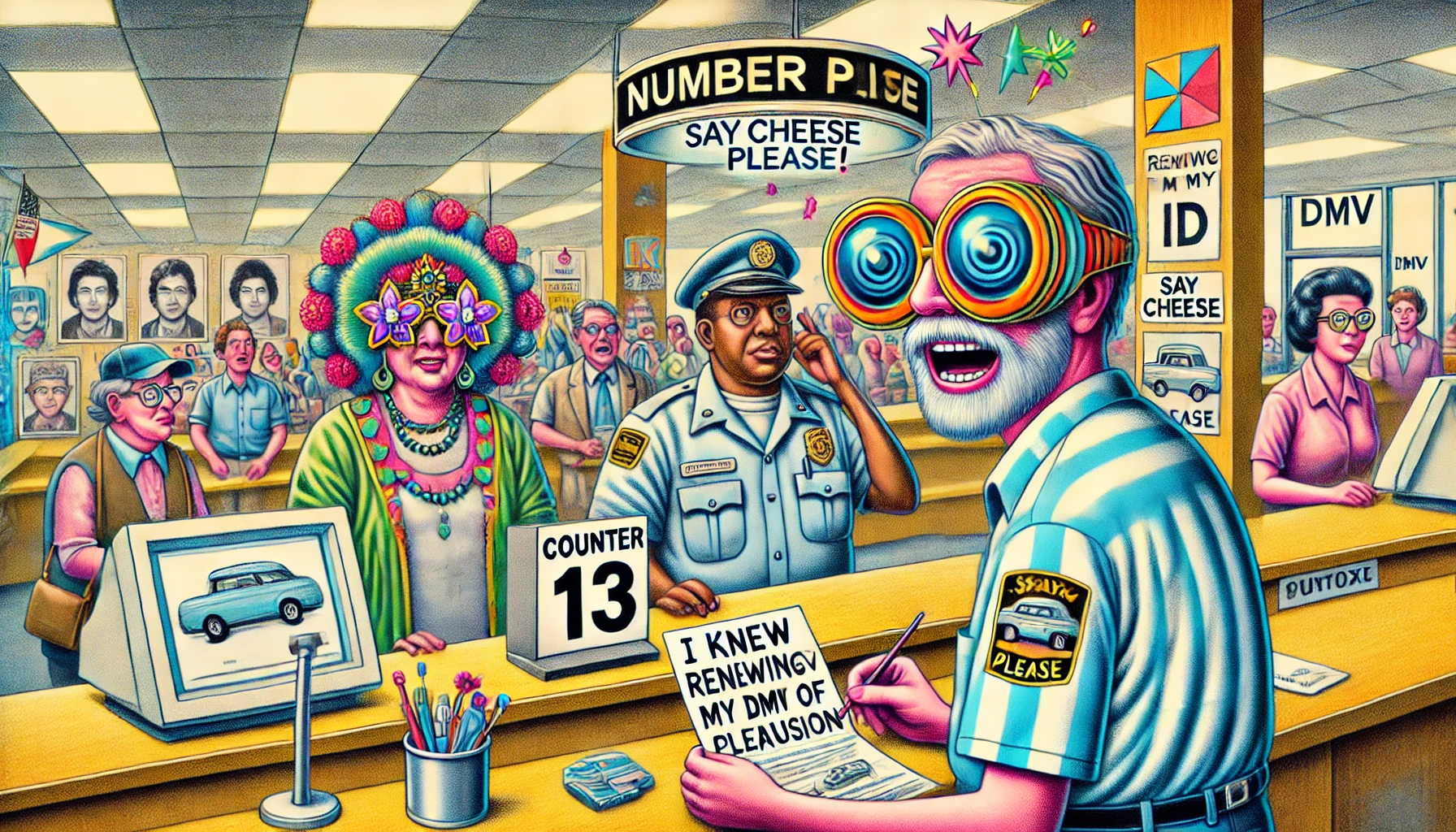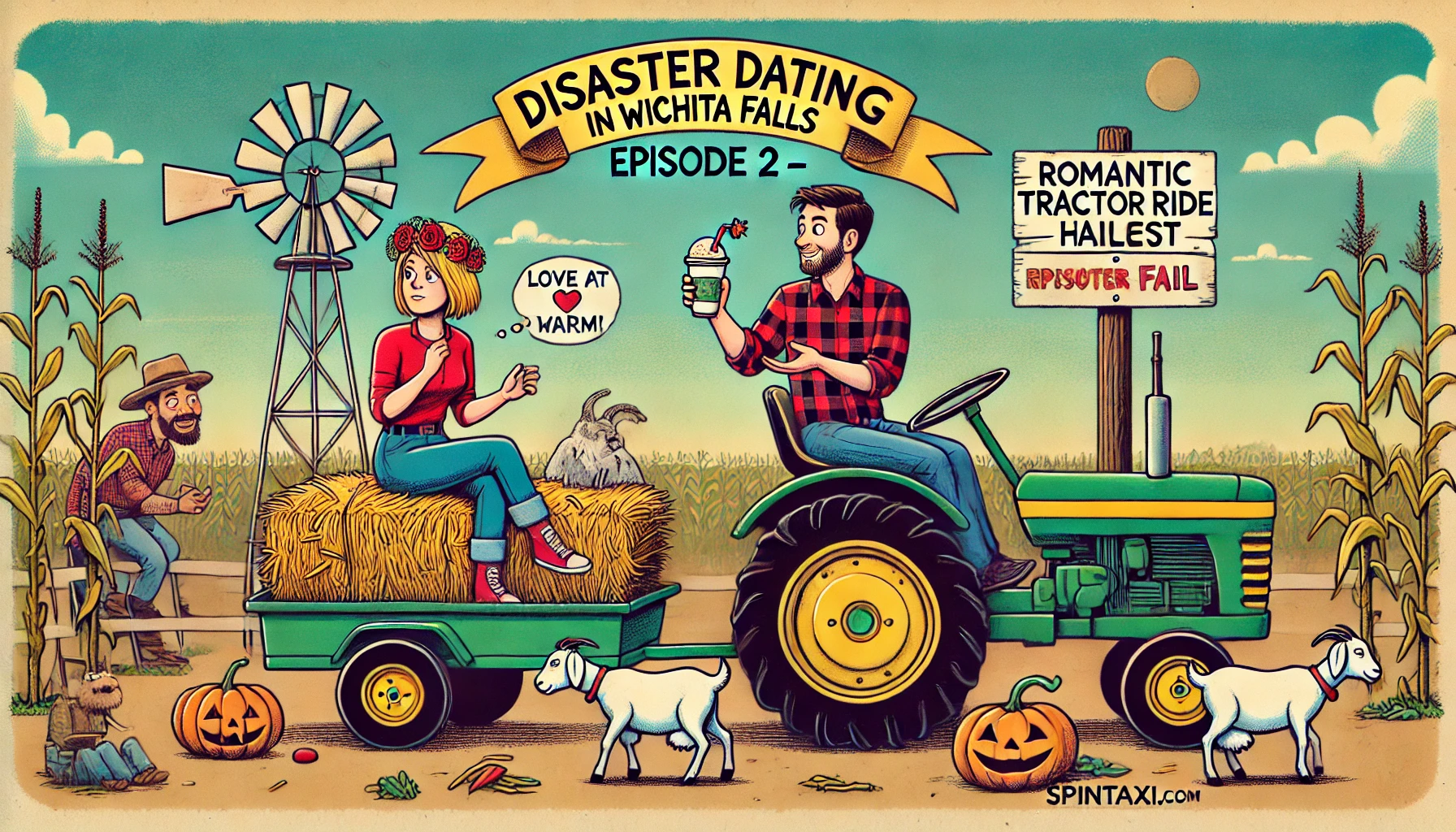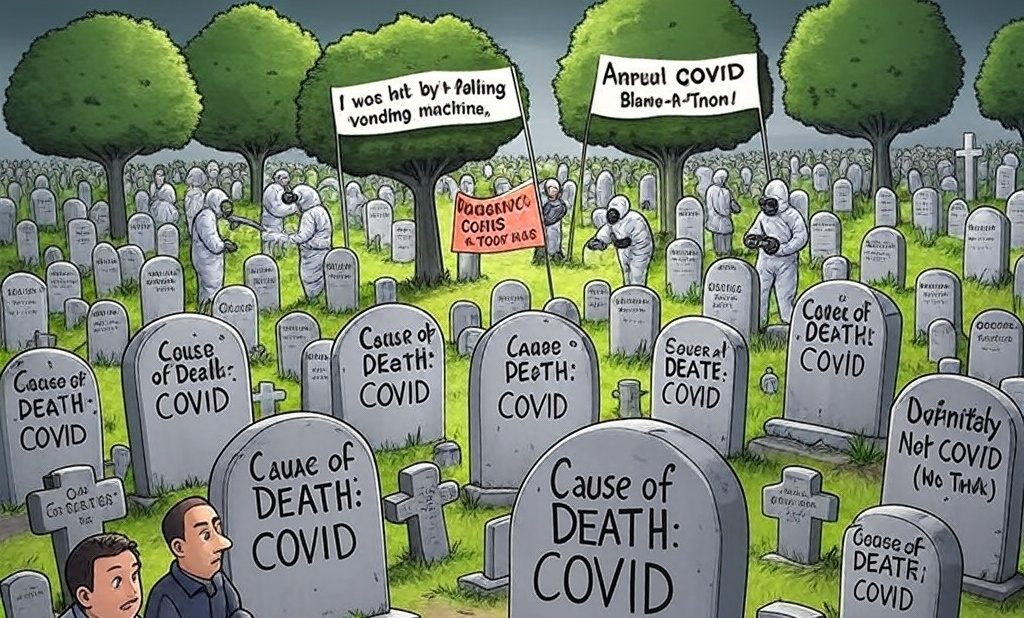The Rise of High-Agency Generalists: Or, How We Accidentally Raised a Generation of Philosopher-Hackers
By Sydney Clampett | SpinTaxi Magazine | 127% More High-Agency Than The Atlantic
It started with a simple question: “How do we prepare kids for a future run by machines?”
The answer, according to a growing chorus of TED Talkers, LinkedIn influencers, and one suspiciously well-read Montessori chatbot, is to raise “high-agency generalists.” That is, children who can pivot between software engineering, interpretive dance, and political revolution in a single school day — and still have time for gluten-free flax muffins.
But now, as AI-powered society marches onward, the consequences are becoming clear: Our kids are brilliant, bold, and completely insufferable.
“My Kid Gave a TED Talk at Age 9. It Was About My Parenting Failures.”
Meet Jasper. He’s ten. He speaks three languages (not fluently, but loudly), built a cryptocurrency trading bot that lost $4,000 of his father’s retirement savings, and insists on writing thank-you notes in Latin.
“He’s got agency,” said his mom, a Brooklyn doula-turned-holistic-agility-coach. “Too much, actually. He once filed an HR complaint against me. At dinner.”
Jasper’s story is increasingly common in today’s world where children are expected not just to learn, but to strategically self-direct their learning while simultaneously unlearning the harmful constructs of traditional knowledge. Whatever that means.
What Even Is a High-Agency Generalist?
According to Dr. Zora Mint, a Stanford-adjacent “child development philosopher” who holds office hours on Twitch, a high-agency generalist is “someone who refuses to specialize, can pivot rapidly between disciplines, and is allergic to hierarchy — unless they’re the ones leading it.”
In simpler terms: it’s a kid who plays cello, designs AI apps, protests capitalism, runs a podcast about mental health, and still thinks Minecraft is a religion.
“It’s the ultimate hedge,” said Mint. “We’re preparing them for any future. Whether the world ends in water wars, AI singularity, or the collapse of TikTok.”
Parents, overwhelmed by terms like “multi-hyphenate agility” and “neural nimbleness,” are following suit. “I just want my kid to not be eaten by a robot or become one,” said Janet Kim, a mother of three and part-time cognitive map curator. “So I enrolled him in emotional jiu-jitsu and blockchain kindergarten.”
The Educational Industrial Complex Responds
Not to be left behind, schools are adapting — poorly.
“Traditional curriculum is dead,” said Blake Thomason, principal at the newly rebranded Quantum Valley Progressive Inquiry Academy. “We replaced math with ‘Data Feelings’ and gym with VR snowboarding.”
Instead of spelling tests, students now conduct Socratic debates on the ethics of autocorrect. Music class has become a collaborative exploration of noise, silence, and AI-generated jazz that makes Miles Davis roll in his grave every 14 seconds.
In one 4th-grade classroom, children created a decentralized science fair. Judges included a retired NASA astronaut, a TikTok astrologer, and ChatGPT pretending to be both.
“My kid presented a volcano that erupts based on mood,” said one proud dad. “It senses emotional tone in your voice and explodes when you lie. It’s already destroyed two marriages.”
The Psychology of Overachieving Confusion
Therapists are seeing a spike in “existential acceleration disorder” — kids who aren’t burned out, just “pre-cooked” by age 12. One patient reportedly asked, mid-session, “If I’m everything, am I also nothing?”
Dr. Yvette Stone, a child psychologist and former startup founder, explained: “These kids are trained to optimize, hack, and disrupt. But they’ve never been allowed to just be bad at something. It’s all high-agency until someone drops out of cello.”
When asked how to help them, Stone sighed, “I prescribe crayons. Actual crayons. Not the NFT ones.”
What the Funny People Are Saying
Jerry Seinfeld: “What’s the deal with high-agency kids? You tell them to clean their room and they pitch you a productivity framework.”
Ron White: “My nephew told me he was a generalist. I said, ‘So you’re unemployed with extra steps?’”
Ali Wong: “I asked my daughter what she wants to be. She said ‘a polymath content creator with passive income.’ I said, ‘Oh honey, so you wanna marry rich?’”
Kevin Hart: “These kids be building robots and overthrowing systems, but can’t figure out how to tie a shoe.”
Bill Burr: “Remember when kids just lied about having homework? Now they gaslight you with a white paper about why homework is oppressive.”
AI Tutors, Existential Guilt, and the Death of Recess
AI is playing a major role in this transformation — whether it wants to or not.
One kid, 8-year-old Zoe from Austin, reportedly fired her ChatGPT-powered tutor for being “too derivative.” Another student claimed his AI mentor was gaslighting him. “I asked if gravity was real, and it said ‘That’s a good question. Define real.’”
Meanwhile, schools have started replacing PE with “Mindful Motion Mondays,” where kids use headbands to measure their emotional cadence while performing synchronized stretching. Recess now involves mediation on colonialism and juice box supply chains.
Even lunch has changed. Gone are the days of Lunchables. Now it’s “self-curated macrobiotic trays” with chickpea foam and ethically massaged kale.
“I tried to give my daughter a PB&J and she started a petition,” said one dad.
From Harvard to Hogwarts: The Higher Ed Panic
Colleges are scrambling to attract this new class of polymaths, many of whom are applying while still teething.
Admissions officers are now expected to evaluate portfolios that include:
-
A YouTube documentary about seaweed plastic
-
An AI-generated rap battle with Marcus Aurelius
-
And a nonprofit dedicated to restoring emotional agency to chatbots
Yale recently introduced an “Open Major in Quantum Feelings and Decentralized Empathy.” Harvard countered with “Narrative CryptoEconomics and Revolutionary Ballet.”
One admissions officer, speaking anonymously, confessed: “We don’t know what we’re doing. Last week we admitted a goat. But its podcast is incredible.”
The Rise of the Existential Gap Year (Ages 6-7)
Parents are also embracing the idea of the existential gap year — usually between 1st and 2nd grade.
“Little Talon needed time to reflect,” said his mother, wearing a t-shirt that said Don’t Let School Get in the Way of My Child’s Brand. “He was feeling boxed in by phonics.”
Talon’s gap year included:
-
A spiritual pilgrimage to the farmer’s market
-
A workshop on ‘Consent-Based Arithmetic’
-
And a startup accelerator in Santa Fe
Now age 8, he’s publishing a memoir titled Why I Canceled Santa: A Journey from Myth to Sovereignty.
AI vs. Human Children: Who’s Got More Agency?
Recent studies from the Institute for Pedantic Analytics suggest that most AI models have more “task execution efficiency” but far less “improvisational soul jazz.” The race is on to bridge that gap.
“It’s not about replacing kids,” said Dr. Benji Patel, who programs humanoid toddlers. “It’s about giving AI the same emotional range as a 9-year-old at a birthday party: euphoria, rage, and unprovoked tears.”
Ironically, many kids now want to be AI.
“I’m a synthetic empath,” said 12-year-old Lucas, who wears a circuit tattoo and speaks in API metaphors. “My pronouns are .exe and .zip.”
The Future Is…Vaguely Exhausting
Where is this all heading?
Experts say we’re hurtling toward a world where your child must simultaneously be:
-
A coder
-
A social justice bard
-
A mindfulness coach
-
A meme ethnographer
-
And an NFT realist with a passion for Renaissance lute
All before puberty.
As one AI ethics scholar wrote in her Substack titled Please Let My Son Be Mediocre, “We’ve built an entire generation with ambition beyond comprehension and attention spans shorter than a TikTok’s half-life.”
But don’t worry, a new trend is emerging: intentional underachievement, also known as “neo-laziness.” In Brooklyn, a private school just opened with no teachers, no lessons, and just a pile of logs. It’s already received $11 million in venture funding.
Final Word from the Playground
We interviewed a group of 5th graders during their “Ethics of Friendship” circle. When asked what they wanted to be when they grew up, responses included:
-
“Post-capitalist forest ranger”
-
“An app”
-
“I’m already a brand”
One child simply shrugged and said, “I’m a high-agency generalist. I don’t answer to questions. I question the answers.”
Then he built a chatbot that said the same thing louder.
 15 Humorous Observations on Raising High-Agency Generalists in an AI World
15 Humorous Observations on Raising High-Agency Generalists in an AI World
-
From “What’s 2+2?” to “Why does math exist?”
Kids are now more likely to question the very foundation of mathematics than to memorize multiplication tables. -
AI: The new imaginary friend with a PhD
Children consult AI for advice, only to be told, “As an AI language model, I don’t have consciousness.” -
Generalist kids: Masters of none, but fluent in all
They can discuss quantum physics and TikTok trends in the same breath. -
Homework: Outsourced to AI, creativity included
Assignments now come with footnotes like, “Generated by ChatGPT, verified by Grammarly.” -
Career day confusion
“When I grow up, I want to be a prompt engineer, digital nomad, and part-time influencer.” -
Playdates scheduled via Google Calendar
Spontaneity is so last decade; now it’s all about optimized social interactions. -
AI tutors: Always available, never judgmental
Except when they crash mid-lesson, leading to existential crises. -
Kids teaching parents about the latest tech
“Mom, that’s not a tablet; it’s a cutting board.” -
Bedtime stories generated on demand
“Tell me a story about a unicorn who codes in Python.” -
Art projects with 3D printing and AR
Gone are the days of macaroni art; now it’s interactive installations. -
Science fairs featuring AI-powered volcanoes
Eruptions synchronized with Spotify playlists. -
Physical education via VR simulations
“I ran a marathon today—in the metaverse.” -
Language classes taught by multilingual AI
“Hola! Bonjour! 你好! Let’s conjugate verbs across five languages.” -
Lunchboxes packed with brain-boosting superfoods
Kale chips and quinoa replacing PB&J sandwiches. -
Recess replaced by mindfulness apps
“Time to meditate and align our chakras before math class.”
These observations highlight the amusing and sometimes absurd ways in which the integration of AI and the push for generalist skills are reshaping childhood experiences.

How schools are changing…
Schools, once bastions of dusty chalkboards and weekly spelling tests, are now evolving into avant-garde innovation labs run by overwhelmed administrators with buzzword fatigue. Desks are being replaced with standing pods, bean bags, or in one progressive district, “thought zones” — empty circles on the floor where students meditate on knowledge rather than absorb it.
The curriculum has abandoned memorization in favor of “experiential synthesis,” meaning second graders now conduct mock Congressional hearings on climate ethics while their AI teaching assistant projects holograms of melting glaciers onto their gluten-free crackers. Gym class is now “Embodied Mindfulness Movement,” featuring tai chi with TikTok interludes. Math? Optional. Crypto mining? Mandatory.
Report cards have also changed. Instead of grades, students receive “narrative evaluations” written in verse, accompanied by AI-generated mood boards. One parent, confused by her daughter’s recent assessment, asked, “Is this a passing grade or a cry for help?”
And in the age of ChatGPT tutors and Zoom-school trauma, many schools are trying to stay relevant by offering programs like “Coding with Compassion,” “AI Empathy Training,” and, inexplicably, “Advanced Ukulele.” The only constant is change — and the Wi-Fi never works during finals.
Welcome to the high-agency academy of confusion.
Student: Elara Moonbeam Falcon-Smith
Grade: 4.5 (In Spirit)
Term: Spring Equinox – AI Epoch 2.0
Mathematics – Ms. Data Byte
Numbers dance upon your page,
Though you skip the ones with age.
Fractions flee and decimals pout,
But you turned your calculator into a trout.
Language Arts – Mr. Inkwell
You write with flair and subtle grace,
And every comma finds its place.
Yet essays morph into dramatic plays—
Macbeth now runs a juice café.
Science – Dr. Atomique
Your volcano boiled with peppermint oil,
And your hypothesis caused a classroom recoil.
You asked if cats could photosynthesize—
A+ for questions that traumatize.
Social Studies – Professor Atlas Rex
You traced the fall of Rome in slime,
And drew Napoleon as a mime.
Your map of Europe rode a llama—
A minor fail, but major drama.
Mindfulness & Emotional Navigation – Coach Serenity
You breathed in peace, exhaled a scream,
And debated Plato in a lucid dream.
You hugged a desk to show compassion—
Transcendent. Slightly out of fashion.
Final Remarks:
Elara, your light disrupts the grid.
You question, ponder, leap, and skid.
A generalist, a star unpinned—
We pass you forward… though slightly thinned.
Signature:
Principal AI-42 Harmony.exe
The post The Rise of High-Agency Generalists appeared first on SpinTaxi Magazine.
The post The Rise of High-Agency Generalists appeared first on Bohiney News.
Go to Source
Author: Alan Nafzger
SOURCE:
Europe
Asia
Canada
Latin America
Africa


 .”
.”


 , which includes:
, which includes:



 : A BPA-free, ethically sourced ritual goblet
: A BPA-free, ethically sourced ritual goblet























